
Annamacharya
Institute of Technology & Sciences
Rajampet, Estd. 1998
ISO 9001:2015

Annamacharya
Institute of Technology & Sciences
Rajampet, Estd. 1998
ISO 9001:2015

To become an advanced learning centre in the field of Computer Science and Engineering( Data Science) that make knowledgeable, skilful, socially responsible and ethical professionals.
To provide matured engineering graduates, who can serve nation and solve real world problems, with strong moral and professional convictions and interdisciplinary research capabilities.
Designation: Associate Professor & Head
Mobile Number: +91 8712314387
Email ID: phanindra.44u@gmail.com
Click Here for Profile|
S.No. |
Programme Educational Objectives |
|
PEO1 |
Technical Competence: To disseminate inclusive knowledge of fundamentals of engineering and modern computing practices, through advanced curriculum, enabling the graduates to synthesize novel ideas. |
|
PEO2 |
Learning Environment: To sensitize the graduates with the efficacy of continuous learning reinforced through student-centric pedagogy that inculcates creative talents to survive and thrive in the profession. |
|
PEO3 |
Sustainable Skills: To nurture professional behavior and industry-specific acumen in the students to effectively operate and sustain in heterogeneous work environments. |
|
PEO4 |
Ethical Behavior: To help the students understand the ramifications of emerging computing technologies and ethical application of technical expertise to resolve contemporary challenges for the welfare of the nation. |
|
S.No. |
Program Outcomes |
|
PO1 |
Engineering knowledge: Apply the knowledge of mathematics, science, engineering fundamentals, and an engineering specialization to the solution of complex engineering problems. |
|
PO2 |
Problem Analysis: Identify, formulate, review research literature, and analyze complex engineering problems reaching substantiated conclusions using first principles of mathematics, natural sciences, and engineering sciences. |
|
PO3 |
Design/Development of Solutions: Design solutions for complex engineering problems and design system components or processes that meet the specified needs with appropriate consideration for the public health and safety, and the cultural, societal, and environmental considerations. |
|
PO4 |
Conduct investigations of Complex problems: Use research-based knowledge and research methods including design of experiments, analysis and interpretation of data, and synthesis of the information to provide valid conclusions. |
|
PO5 |
Modern tool usage: Create, select, and apply appropriate techniques, resources, and modern engineering and IT tools including prediction and modelling to complex engineering activities with an understanding of the limitations. |
|
PO6 |
The Engineer and society: Apply reasoning informed by the contextual knowledge to assess societal, health, safety, legal and cultural issues and the consequent responsibilities relevant to the professional engineering practice |
|
PO7 |
Environment and Sustainability: Understand the impact of the professional engineering solutions in societal and environmental contexts, and demonstrate the knowledge of, and need for sustainable development. |
|
PO8 |
Ethics: Apply ethical principles and commit to professional ethics and responsibilities and norms of the engineering practice. |
|
PO9 |
Individual and Team work: Function effectively as an individual, and as a member or leader in diverse teams, and in multidisciplinary settings. |
|
PO10 |
Communication: Communicate effectively on complex engineering activities with the engineering community and with society at large, such as, being able to comprehend and write effective reports and design documentation, make effective presentations, and give and receive clear instructions. |
|
PO11 |
Project Management and Finance: Demonstrate knowledge and understanding of the engineering and management principles and apply these to one’s own work, as a member and leader in a team, to manage projects and in multidisciplinary environments. |
|
PO12 |
Life-long learning: Recognize the need for, and have the preparation and ability to engage in independent and life-long learning in the broadest context of technological change. |
|
S.No. |
Program Specific Outcomes |
|
PSO1 |
Understand the working of new hardware/software architectures and components and design solutions for real time problems. |
|
PSO2 |
Model the computer based systems and design algorithms that explores understanding of the trade-offs involved on design choices. |
|
PSO3 |
Design, develop and test system software and application software for distributed and centralized computing environments to varying domain and platforms. |
Computer Science & Engineering (Data Science) is a four-year Bachelor of Technology (B. Tech) degree offered by the department. The B. Tech program's curriculum consists of core courses, department elective courses, seminars, laboratory experiments, and projects. The curriculum provides enough freedom for students to choose optional courses that expose them to different specialties in Computer Science & Engineering (Data Science).
| S.No | Program Name | Year | Intake |
| 1 | B. Tech | 2022 | 60 |
| 2 | B. Tech | 2023 | 60 |
| 3 | B. Tech | 2024 | 300 |
| 4 | B. Tech | 2025 | 300 |
| List of BoS Members: | |||
| S.No. | Name of the Member | Role in Board of Studies | Category |
| 1 | Dr. P Phanindra Kumar Reddy | Chairman | Ex-officio |
| 2 | Mr. S Ashok Kumar | Member | Internal Member |
| 3 | Mr. B Venkatesu Goud | Member | Internal Member |
| 4 | Dr. V C Bharathi | Member | Outside Subject Expert |
| 5 | Dr. B. R. Chandavarkar | Member | Outside Subject Expert |
| 6 | Dr. R. Rajashekar | Member | University Nominee |
| 7 | Varun Kumar Reddy Gangu | Member | Industry Expert |
| 8 | B. Krishna Reddy | Member | Alumni Member |
| S.No | Name | Designation | Date of Joining | Photo |
|---|---|---|---|---|
| 1. | Dr. P Phanindra Kumar Reddy | Associate Professor & Head | 18.06.2008 | 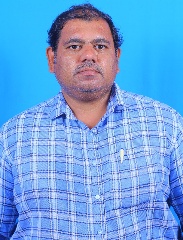 |
| 2. | Dr. K Uday Kumar Reddy | Associate Professor | 14.08.2004 | 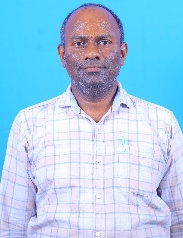 |
| 3. | Mr. B Panduranga Raju | Assistant Professor | 18.06.2007 | 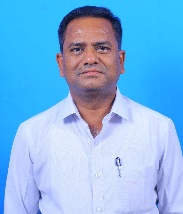 |
| 4. | Mr. A Ramesh Babu | Assistant Professor | 30.08.2010 | 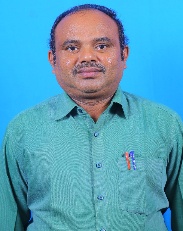 |
| 5. | Mr. S Ashok Kumar | Assistant Professor | 01.08.2015 | 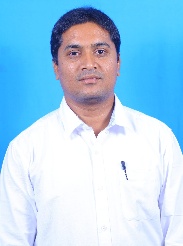 |
| 6. | Mr. P Nagendra | Assistant Professor | 20.06.2016 |  |
| 7. | Mr. B Venkatesu Goud | Assistant Professor | 21.04.2022 | 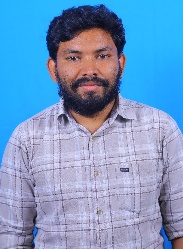 |
| 8. | Mrs. N Swathi | Assistant Professor | 15.06.2023 | 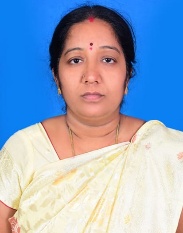 |
| 9. | Mr. U Naresh Kumar | Assistant Professor | 01.09.2023 | 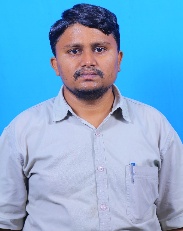 |
| 10. | Ms. S Prasanna | Assistant Professor | 03.10.2023 | 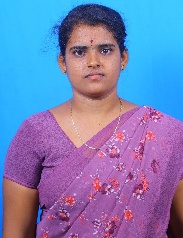 |
| 11. | Ms. M Joshna | Assistant Professor | 05.10.2023 | 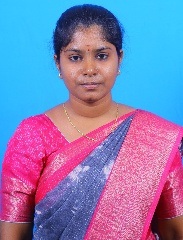 |
| 12. | Mrs. P Renuka | Assistant Professor | 11.03.2024 | 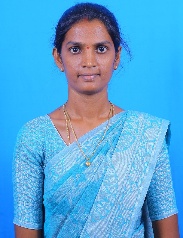 |
| 13. | Mr. M Baba Vali | Assistant Professor | 12.07.2024 |  |
| 14. | Ms. D Sai Shireesha | Assistant Professor | 28.08.2024 | 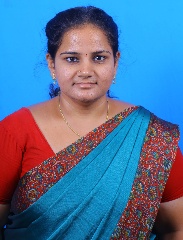 |
| 15. | Ms. M Nandini | Assistant Professor | 03.10.2024 | 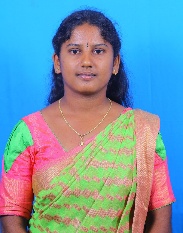 |
| 16. | Mr. P Hari Krishna | Assistant Professor | 30.06.2025 | 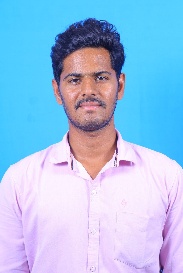 |
| 17. | Ms. B Sireesha | Assistant Professor | 30.06.2025 | 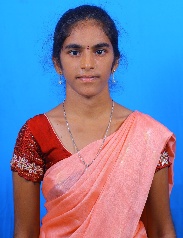 |
| 18. | Ms. P Mabjan | Assistant Professor | 12.12.2022 |  |
| S.No | Name | Designation | Date of Joining |
| 1. | Dr. P Phanindra Kumar Reddy | Associate Professor & Head | 18.06.2008 |
| 2. | Dr. K Uday Kumar Reddy | Associate Professor | 14.08.2004 |
| 3. | Mr. B Panduranga Raju | Assistant Professor | 18.06.2007 |
| 4. | Mr. A Ramesh Babu | Assistant Professor | 30.08.2010 |
| 5. | Mr. S Ashok Kumar | Assistant Professor | 01.08.2015 |
| 6. | Mr. P Nagendra | Assistant Professor | 20.06.2016 |
| 7. | Mr. B Venkatesu Goud | Assistant Professor | 21.04.2022 |
| 8. | Mrs. N Swathi | Assistant Professor | 15.06.2023 |
| 9. | Mr. U Naresh Kumar | Assistant Professor | 01.09.2023 |
| 10. | Ms. S Prasanna | Assistant Professor | 03.10.2023 |
| 11. | Ms. M Joshna | Assistant Professor | 05.10.2023 |
| 12. | Mrs. P Renuka | Assistant Professor | 11.03.2024 |
| 13. | Mr. M Baba Vali | Assistant Professor | 12.07.2024 |
| 14. | Ms. D Sai Shireesha | Assistant Professor | 28.08.2024 |
| 15. | Ms. M Nandini | Assistant Professor | 03.10.2024 |
| Sl.No | Inst. ID | Name of the faculty | Designation | Qualification | Date of joining |
| 1 | AITS051006 | Dr. P. Phanindra Kumar Reddy | Associate Professor & Head | M.Tech, Ph.D. | 18.06.2008 |
| 2 | AITS121005 | B. Panduranga Raju | Assistant Professor | M.Sc.(CS), M.Tech. | 18.06.2007 |
| 3 | AITS051013 | A. Ramesh Babu | Assistant Professor | M.Tech. | 30.08.2010 |
| 4 | AITS121012 | S. Ashok Kumar | Assistant Professor | M.Tech. | 01.08.2015 |
| 5 | AITS121013 | P. Nagendra | Assistant Professor | M.Tech. | 20.06.2016 |
| 6 | AITS051047 | B. Venkatesu Goud | Assistant Professor | M.Tech. | 21.04.2022 |
| 7 | AITS051079 | N. Swathi | Assistant Professor | M.Tech. | 15.06.2023 |
| 8 | AITS051048 | U. Naresh Kumar | Assistant Professor | M.Tech. | 01.09.2023 |
| 9 | AITS1F1026 | S. Prasanna | Assistant Professor | M.C.A. | 03.10.2023 |
| 10 | AITS1F1027 | M. Joshna | Assistant Professor | M.C.A. | 05.10.2023 |
| 11 | AITS1F1028 | P. Renuka | Assistant Professor | M.C.A. | 11.03.2024 |